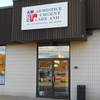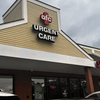
How to Prevent Your Child From Getting Lice, and What to Do if They Do
Having children means at some point you are likely to be faced with an outbreak of lice either at their daycare...
Read moreHelp patients book appointments with you on Solv. It's free!
18 instant-book locations













No more surprise bills. Solv is committed to making getting healthcare as easy as buying groceries at the store, including knowing the price of care upfront.

No more surprise bills. Solv is committed to making getting healthcare as easy as buying groceries at the store, including knowing the price of care upfront.

No more surprise bills. Solv is committed to making getting healthcare as easy as buying groceries at the store, including knowing the price of care upfront.

No more surprise bills. Solv is committed to making getting healthcare as easy as buying groceries at the store, including knowing the price of care upfront.

No more surprise bills. Solv is committed to making getting healthcare as easy as buying groceries at the store, including knowing the price of care upfront.

No more surprise bills. Solv is committed to making getting healthcare as easy as buying groceries at the store, including knowing the price of care upfront.

No more surprise bills. Solv is committed to making getting healthcare as easy as buying groceries at the store, including knowing the price of care upfront.

No more surprise bills. Solv is committed to making getting healthcare as easy as buying groceries at the store, including knowing the price of care upfront.
Help patients book appointments with you on Solv. It's free!
According to the CDC, sexually active individuals, particularly those with multiple partners, should get tested for STDs regularly. This includes both men and women, as well as those in same-sex relationships. Additionally, individuals who engage in unprotected sex or share needles for drug use are at a higher risk and should consider regular testing. It's important to note that STDs often do not present symptoms, making regular testing crucial for those at risk.
Getting tested for STDs is a vital part of maintaining one's health and preventing the spread of disease. Many STDs can be asymptomatic, meaning they show no signs or symptoms. However, they can still cause serious health complications if left untreated, including infertility, certain types of cancer, and increased susceptibility to HIV. Regular testing allows for early detection and treatment, reducing the risk of these complications. According to the CDC, it also helps prevent the spread of these diseases to others.
Urgent care and walk-in clinics are a convenient option for STD testing in Providence, RI. These facilities often offer same-day appointments and extended hours, making it easier for individuals to get tested. One such location is PhysicianOne Urgent Care in nearby Attleboro, MA. With a high rating and positive reviews, it's a reliable choice for STD testing.
Primary care providers are another excellent resource for STD testing. These healthcare professionals can provide testing as part of a routine check-up or upon request. They can also provide counseling on prevention and treatment options.
For those without insurance or with limited financial resources, free STD testing is available at community health centers in and around Providence. These centers provide essential healthcare services to underserved populations, ensuring everyone has access to STD testing.
At-home STD testing is a convenient option for those who prefer privacy or have difficulty accessing in-person services. These tests can be ordered online, completed at home, and sent to a lab for analysis. Results are typically available within a few days.
The prevalence of STDs in Providence varies, but the city has seen an upward trend in recent years, mirroring a national increase. According to the CDC, chlamydia, gonorrhea, and syphilis are the most commonly reported STDs in the area. The rates of these diseases in Providence are consistently higher than the national average, emphasizing the importance of regular testing and prevention efforts in this community.
Several risk factors contribute to the prevalence of STDs in Providence. These include a high rate of unprotected sex, multiple sexual partners, and drug use. Additionally, socioeconomic factors such as poverty and lack of access to healthcare contribute to the spread of these diseases. It's important for individuals in Providence to understand these risk factors and take steps to protect themselves, such as using condoms, reducing the number of sexual partners, and getting tested regularly.
Solv has strict sourcing guidelines and relies on peer-reviewed studies, academic research institutions, and medical associations. We avoid using tertiary references.
In a doctor's office, a health clinic, or an urgent care center, you can get an STD test. If you're experiencing symptoms, it's best to visit a doctor's office, where they can also treat you or issue you a prescription. While some Providence clinics and urgent care centers allow walk-in appointments, it's advisable to make an appointment ahead of time to prevent excessive waits.
Various testing are required for various STDs. Depending on the type of STD test you took, you may receive your results in two to ten days. Some outcomes may be immediately available. Your doctor may be able to diagnose an STD through a physical examination. In some cases, your doctor's office may only contact you if your test results are positive.
The cost of STD testing is governed by several factors, including where you are tested, the type of test you need, and if you have health insurance. Some Providence clinics may offer free testing or testing on a sliding scale based on your income. Because of the cost, don't put off obtaining an STD test. With your doctor's office, discuss the cost and payment choices. Delaying STD treatment may have catastrophic implications.
The cost of STD testing is governed by a number of factors, including the location of the test, the type of test required, and whether or not you have health insurance. Some clinics may provide free or sliding-scale testing, depending on your income. Don't let the expense of an STD test deter you from getting one. With your doctor's office, discuss the price and payment choices. Delaying STD treatment could have catastrophic ramifications.
There are around 20 different forms of STDs, each with its own set of diagnostic tests. No single test exists that can detect all types of STDs. Your doctor can help you figure out which tests you'll need. In STD testing, a blood sample or a urine sample may be used. Your doctor may also take a swab from the inside of your cheek, your vaginal area, or another potentially infected place.
Blood tests are used to diagnose hepatitis B, hepatitis C, herpes, HIV, and syphilis. In a laboratory, a technician examines a blood sample for antibodies that the body has produced in reaction to disease. The virus's DNA can also be detected by several blood tests. Remember that if you've recently been exposed to an STD and your body hasn't yet produced antibodies, you could test negative even if you have the disease.
Many Providence, RI urgent care providers offer same-day and next-day appointments, which you may book through Solv. To make healthcare more accessible to everyone, we collaborate with thousands of top-rated local providers. Our physician partners understand that waiting days, if not weeks, for an appointment isn't always the best option, and they share our commitment to simple, accessible health care.
To find a healthcare practitioner in your area, simply enter your location and search for "STD test" on our website. A list of providers and available appointments can be found on the following page. Choose the most convenient time and location for you. Make it clear that you've come for STD testing.
If you have a specific STD, inform your doctor so that the necessary test can be scheduled. Otherwise, they'll help you figure out which tests you'll need. The nurse or doctor simply needs a few minutes to get a blood sample, a urine sample, or a swab from the probable infection site.
Although there are several STD home tests available, not all of them are accurate. The accuracy of any STD test is determined by the quality of the sample taken. For home STD kits, a blood sample, a urine sample, or both are frequently required. Because doctors and nurses have more experience collecting samples, traditional in-office STD testing is the most accurate.
Chickenpox Vaccine in Providence
DOT Exam in Providence
Ear Wax Removal in Providence
Flu Shot in Providence
Hepatitis Vaccine in Providence
Measles Vaccine (MMR) in Providence
Physical Exam in Providence
Shingles Vaccine in Providence
Sports Physicals in Providence
Tetanus Shot in Providence
Typhoid Vaccine in Providence
Yellow Fever Vaccine in Providence
A1C Test in Providence
Allergy Testing in Providence
CMP Test in Providence
Diabetes Test in Providence
Diagnostic Test in Providence
Glucose Test in Providence
H Pylori Test in Providence
Hepatitis test in Providence
Lab Tests in Providence
Mono Test in Providence
Pregnancy Test in Providence
Pulmonary Function Test in Providence
RSV Test in Providence
STD Testing in Providence
Strep Test in Providence
TB Test in Providence
Thyroid Test in Providence
Vitamin D Test in Providence
Tips, advice, news—your resource to stay healthy and safe while improving your experience with healthcare providers when you need them.